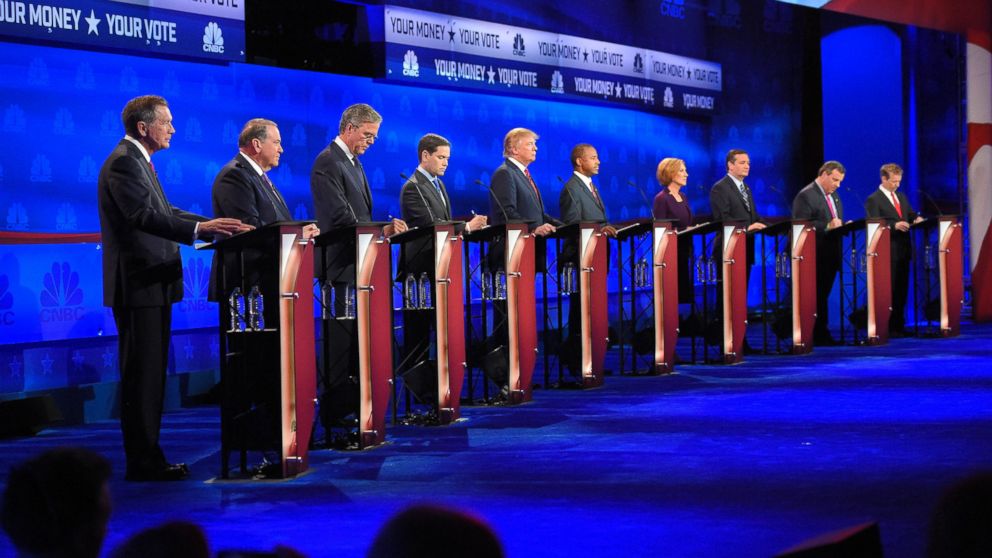GOP Presidential Campaigns Meet to Shake Up Primary Debate Process
— -- Representatives for many of the Republican presidential candidates gathered Sunday night near Washington, DC to work on reshaping their party's primary debates.
The meeting came in the wake of last week's widely-criticized debate, hosted by CNBC, which drew sharp rebukes from the Republican National Committee as well as many of the candidates.
"We are going to take a greater role in negotiating with the networks on format," Gail Gitcho, a top aide to presidential candidate and Louisiana Gov. Bobby Jindal, said after the more than two-hour session.
The campaign of former neurosurgeon Ben Carson organized Sunday night's summit. Carson came out swinging following the debate in Colorado, saying it "so clearly demonstrated a need for change in format," and criticizing what he called the "gotcha questions" posed by the moderators.
"We agreed to interject ourselves in the process more than we have been," Carson campaign manager Barry Bennett said as he departed the meeting at northern Virginia hotel. Bennett, a GOP consultant who has advised Ohio Sen. Rob Portman, was a driving force behind the meeting.
He said all campaigns agreed on the following: Candidates must be allowed a minimum of 30 seconds for opening and closing statements; debate moderators will post an equal number of questions to all candidates; debate hosts must agree to an on-screen graphic approval process for candidate biographical information.
Bennett said broadcast sponsors will receive a joint letter in the next 48 hours asking them to answer a 40-question questionnaire. The campaigns will then schedule a conference call on the format and the candidates will decide individually on whether they will participate.
Carson’s campaign said they coordinated Sunday's meeting with the campaigns of Jindal, Donald Trump and South Carolina Sen. Lindsey Graham. (Their low poll numbers relegated both Jindal and Graham to the so-called "undercard" debate last week).
A source in the room told ABC News that there was a lot of consensus around other logistical issues, including conversations on better green rooms and eliminating scrolling tweets at the bottom of the screen. “I was surprised by how much agreement there was (between the campaigns). I was prepared to walk in there and for it to be a complete cluster…” the source told ABC News.
The source also said there was concern about having candidates getting marginalized – some by the undercard debate and some by the large number of candidates in the mainstage debates. The Trump campaign wants to limit the people on the stage, while the Carson campaign wants all of the candidates on the stage, the source said.
Meanwhile, the RNC on Sunday took steps to quell an all-out revolt by the campaigns.
A committee official confirmed to ABC News that a letter was sent on Sunday from RNC Chief of Staff Katie Walsh to 14 GOP campaign managers saying they were appointing Sean Cairncross, chief operating officer of the RNC, to take the central role in the debate process. The staffing news was first reported by Politico.
Bennett said they weren't boxing out the RNC: "We'll work with them but we want to negotiate format directly with the broadcast sponsors."
Ahead of the meeting, Bennett had said he did not expect every issue to be resolved. "This is just step one," he said.




